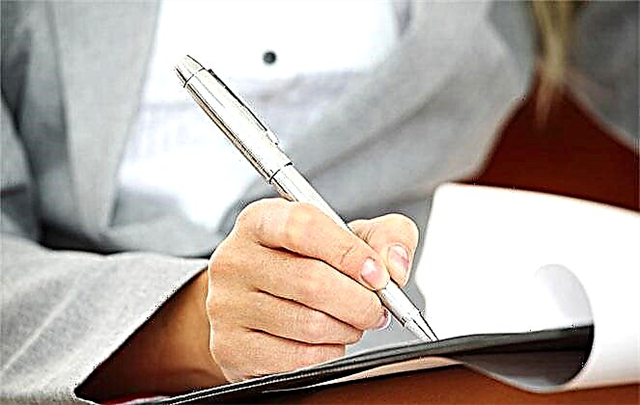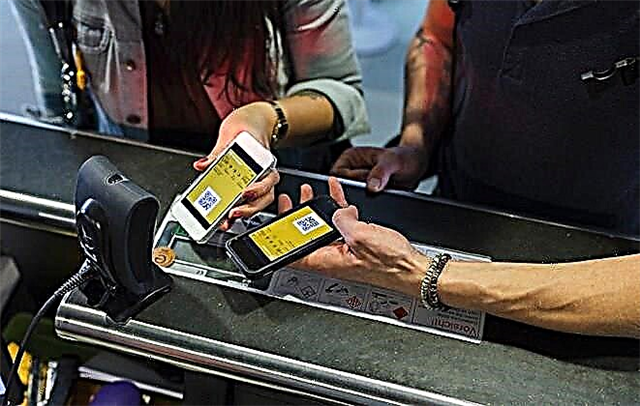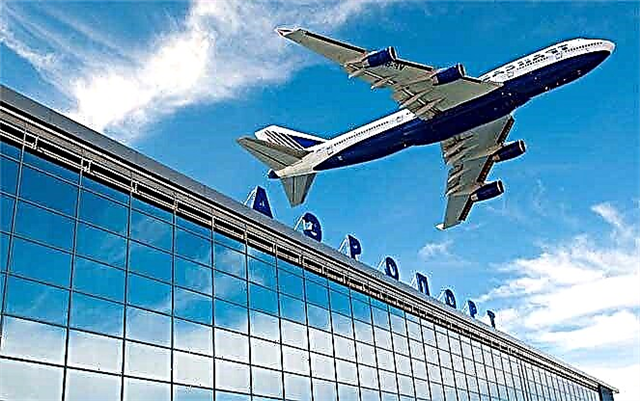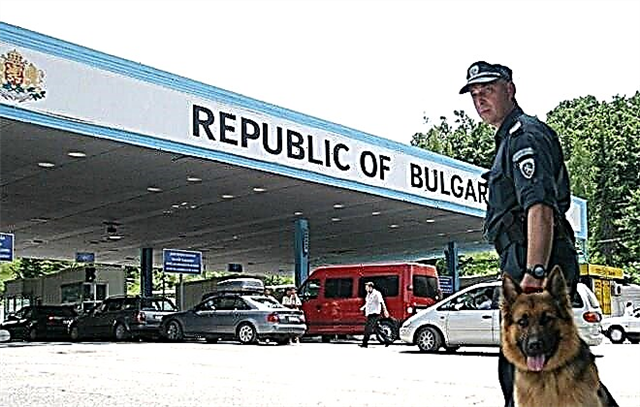Holidays in Bulgaria became popular with Russians back in the days of the Warsaw Pact, when political and economic ties between the countries were at their peak. Thanks to the warm climate, low prices and the customary mentality of the Bulgarians, the traditions of travel to this state were not interrupted even with the collapse of the USSR. Another popular reason for such trips is the possibility of easily obtaining a residence permit in this EU country when purchasing real estate. To avoid problems on this trip, it is worth finding out the main customs rules in Bulgaria in force in 2021.
General rules
Despite the fact that since 2007 Bulgaria has been a full member of the European Union, the process of its entry into the Schengen zone as of 2021 has not been completed. Nevertheless, the basic rules for entering the country coincide with the requirements of the Schengen countries.
To cross the Bulgarian border, you will need the following documents:
- a foreign passport, which expires no earlier than 3 months before the end of the trip;
- visa (a national visa of any category is suitable, any reusable Schengen visa, as well as national visas for Cyprus, Romania or Croatia);
- medical insurance policy (coverage must be more than 30 thousand euros);
- return tickets;
- confirmation of hotel reservation or other evidence of the availability of accommodation for the duration of the trip;
- documents confirming sufficient financial support (from 50 € / day, but not less than 500 € for the trip).
If you are traveling on your own transport, with animals, or carrying some categories of cargo, you may need other documents.
The basic rules for entry into a country are governed by its national laws and EU directives, and are monitored by the national customs office.
How to get through the Bulgarian customs
According to the common border crossing procedure for the EU countries, established by the European Parliament Regulation No. 952/2013 and the European Parliament Regulation No. 2016/399, after passing through passport control, all guests of the country (with the exception of holders of a diplomatic passport) must undergo customs control.
The organization of control at land border crossing points and at airports is somewhat different, so it is worth considering them separately.
Customs at the airport
As in other European countries, the airports of Bulgaria, after passport control, will meet you with two corridors: "green" and "red".
In addition to the color of arrows and plates, they differ in purpose - if you do not have luggage with you, which must be declared, then you can follow the “green” corridor, where customs control is carried out selectively, and not for all tourists.
If you have a large amount of money or other goods subject to declaration with you, then you need to follow the "red" corridor and fill out a declaration without fail.
It will be easier to navigate the differences between the corridors than in other EU countries, because all the inscriptions on them are made in Bulgarian, which is very close to Russian.
Please note that the choice of the "green" passage is considered an oral statement about the absence of items subject to declaration in the baggage and hand luggage of the tourist.
Therefore, if, as a result of a subsequent check, it turns out that you still had such items with you, then, in addition to paying the corresponding fee, you will have to pay an additional fine.
In some cases, instead of a fine, confiscation of the relevant goods is imposed (this is the measure most often used in Bulgaria) and even criminal prosecution (usually in the case of large-scale smuggling of valuables or attempts to transport prohibited items).
Passing control by car
There are no “corridors” at ordinary checkpoints, so control will have to be passed in any case. If at the same time you are still driving your own or rented car, then in addition to the above mandatory documents you will need:
- driver's license (Russian license of a new type, issued after 2021, or IDP);
- technical passport of the vehicle;
- international insurance policy of the Green Card standard.
If you have rented a car, you will need a rental agreement. If you are traveling with a power of attorney, do not forget to take it with you.
Directly at the checkpoint or at the nearest gas station, you need to pay a toll, which is 5 euros, and stick the resulting vignette (rovinet) on the windshield of the car. If you travel around the country without this vignette, you will have to pay a € 300 fine.
Also, the car must have a first aid kit, a fire extinguisher, an emergency stop sign, a tow rope and a reflective vest. Of course, the car must be in good technical condition. A certificate on the level of CO in the exhaust is also desirable.
It is convenient to check the workload of checkpoints on the website of the country's border police.
Baggage transportation across the border of Bulgaria
All goods, if possible, for their import and export from Bulgaria are divided into permitted, restricted and prohibited. Therefore, when packing your bags before the Black Sea voyage, it is worth finding out the rules for transporting different goods.
If you have not found the position you are interested in in the sections below, it is worth checking the official website of the Bulgarian customs.
Permitted loads
Please take a sociological survey!
[yop_poll id = ”10 ″]
Foreign citizens who do not have EU passports are entitled to duty-free transportation of such goods:
- no more than 200 cigarettes (the importing person must be at least 17 years old);
- up to 500 grams of coffee;
- no more than 100 g of tea;
- up to 50 ml of perfume or up to 250 ml of cologne;
- personal items (clothes, phone, laptop, etc.);
- other goods with a total value of up to 100 €.
The norms for the carriage of alcohol without paying taxes are 1 liter of strong (above 22 degrees) alcohol or 2 liters of wine. Of course, only tourists over 16 years old can take advantage of this opportunity.
Please note that all specified limits are valid only for the first trip to the country within a calendar month. If you come more often, then next time the rates will be only 20% of the indicated ones.
For persons under 16, the limits are also lower and amount to 50% of the above.
For any goods more expensive than 100 euros, you will have to pay 20% VAT and a duty of 5% of the cost.
Separately, it is worth clarifying what products can be imported into Bulgaria:
- concentrates and extracts from meat;
- nutritional supplements;
- canned vegetables and fruit;
- sweets;
- baked goods;
- products from raw materials that do not contain meat and fish, technically processed by 50% or more;
- infant formula (when traveling with a child);
- any medically prescribed products (with a certificate from the attending physician with a certified translation into English).
Basic rules for the import of animals to Bulgaria:
- tourists can only import pets;
- an international veterinary passport with an indication of the required vaccinations is needed, and a rabies vaccination is required, given no later than a month, and no earlier than a year before the trip;
- there must be an EU certificate that the animal is healthy;
- the pet must be microchipped.
Sometimes, in addition, you may need a certificate from the chief veterinarian of your city, which in the last 6 months there have been no cases of rabies in your village.
If a pet is imported less than 3 months old, instead of being vaccinated against rabies, you will need a certificate that from the moment of birth the pet was kept at home, without going outside.
Prohibited goods
In order to avoid problems at customs, it is worthwhile to figure out what cannot be imported into Bulgaria from Russia and other countries.
The list of items prohibited for import in any quantities without appropriate permits is fairly standard for any European country and includes:
- weapons (except for hunting with appropriate certificates) and ammunition for it;
- hazardous substances (explosives, poisons, sources of ionizing radiation);
- narcotic and psychotropic substances;
- medicines (except for those necessary for medical reasons);
- rare species of animals and plants;
- items of high historical, cultural or artistic value;
- meat or dairy products (except as indicated above);
- products containing more than 5% cocoa.
Separately, it is worth clarifying the question of which medicines cannot be transported to Bulgaria. The country's legislation restricts the import of drugs, the active substances of which are classified as narcotic. Most often, problems arise with the import of drugs containing codeine and ephedrine (pentalgin, Nurofen, Codelac, Bronholitin) and so on. They must be sure to take with you a prescription with the seal of the clinic and the signature of a doctor, and their number should not exceed 20 tablets. All medicines are transported in their original packaging and with instructions for use.
The same recommendations apply to other prescription drugs: if you have a prescription for a drug, be sure to take it with you. It is desirable that it be completed in English or have a certified translation.
It is better to carry medicines that you are unlikely to need in the cabin of the aircraft in your luggage. In hand luggage, it makes sense to take only emergency medications, such as asthma inhalers. Just keep in mind that any liquid must be packaged in containers with a volume of less than 100 ml, otherwise you will not be allowed to take it on board.
Export restrictions
Of course, you can take out of the country everything that you legally imported into it, as well as any goods you legally purchased.
The export of currency from Bulgaria is carried out according to the following rules:
- an amount up to 8 thousand levs (4 thousand euros) need not be declared;
- the amount over 4000 € or its equivalent in foreign currency is subject to declaration;
- for the export of an amount exceeding 25,000 leva (12,800 €), you additionally need to obtain a certificate of absence of arrears from the country's tax service.
Fans of famous Bulgarian wines and brandy should find out how much alcohol can be taken out of Bulgaria. You can take with you as a keepsake up to 1 liter of strong alcohol (over 22 degrees), up to 2 liters of any wine or up to 16 liters of beer.
There is also a restriction on the export of cigarettes - there should be no more than 40 pieces.
Goods prohibited for export
The export from the country of the same items that it is forbidden to import into it (weapons, drugs, poisons, and so on) is completely prohibited. The control over attempts to export cultural heritage items is especially strict, so when exporting any works of art, you need to have documents justifying their origin.
In theory, the export of any quantity of goods permitted for export is not prohibited. In practice, if your expenses clearly exceed the amount declared at the entrance, the customs officers may have a question whether you honestly filled out the entry declaration.
In this case, it is better to save receipts for goods for which you paid with a bank card. Remember that, unlike cash, money on a card account is not subject to declaration.
Values declaration rules
According to the requirements of the EU Regulation of October 26, 2005 No. 1889/2005, if you are traveling with an amount of cash or traveler's checks exceeding the equivalent of 10,000 euros, you must declare it when crossing the border. To do this, you must definitely choose the “red” corridor at the airport.
In this case, the declaration is filled out only at the first crossing of the EU border for a trip.
Other categories of baggage requiring mandatory declaration:
- photo and video equipment;
- jewelry.
Without declaring, you can hold jewelry in the following limits:
- up to 37 g of coins, scrap, sand and other semi-finished products made of gold and platinum;
- up to 60 g of gold and platinum jewelry;
- up to 300 g of silver in any form;
- any gemstones in other jewelry.
In order not to pay customs duties several times when traveling from Bulgaria to EU countries and vice versa, be sure to keep receipts for all goods purchased in the European Union during the trip, as well as a receipt from your entry declaration.
Please note that the response of a customs officer to undeclared items found will depend on the context. If you manage to convince him that the violation happened by accident (they forgot to declare the purchased clothes), then, most likely, the matter will be limited to confiscation. If items not specified in the declaration are transported secretly (in secret departments or other items), then in the end you can get a fine or even become a defendant in a criminal case.
How to fill in the declaration correctly
After going into the “red” corridor of the airport or answering in the affirmative to the question of the customs officer about whether you are carrying something that needs to be declared, you will receive a document called “Cash Declaration Form” in the form model No. 3MF-1479/2012. Please note that on the back of it there is instructions for filling out, including in Russian.
The most important requirement is that only one symbol (number or letter) must be entered in each cell. Only white fields of the form are to be filled in - customs officers will be engaged in filling in the gray fields.
Tax Free System
Like many other European countries, Bulgaria has a system that allows you to get back up to 20% of the value of individual goods purchased during the trip. Tax Free in Bulgaria is arranged as follows:
- First of all, you need to find a store that is a member of the system (you can recognize them by the Tax Free logo near the entrance).
- Next, you need to make a purchase for an amount exceeding 1000 levs, while each position in the check must be over 50 levs.
- When paying, you must show the store employee your passport and ask him to fill out a tax-free check. Give him all the information he asks for and make sure all of it is correctly entered on the document.
- Do not unpack your purchases until you leave the country. Passing customs control before boarding the plane, show the employee the purchased goods, a tax-free receipt for them, a cashier's receipt and your passport.
- After receiving the stamp on the tax-free check, find the refund point, which is usually also located at the airport (the easiest way to find them in Sofia, Burgas and Varna).
- The employee of the return point must present the same documents as at customs.
- As a result, you will receive compensation for the goods you purchased, and it is possible to receive it both in cash and in the form of a transfer to a card.
You must stamp the tax-free check no later than 3 months from the date of purchase. Making a return and receiving money is possible within six months after purchasing the goods.
If you did not manage to receive a refund in Bulgaria, you can do it in one of the banks authorized for such operations in Russia, namely:
- PCHRB,
- SMP Bank,
- VTB.
Frequently asked questions
Knowledgeable travelers, especially those with experience of travel to Australia, New Zealand, Thailand, Egypt, Malaysia, Seychelles or Fiji, often worry about whether it is possible to take shells out of Bulgaria. In contrast to these countries, the Bulgarian coastal ecosystem is not unique to the region, and the Red Book species of molluscs are not found in it. Therefore, there are no restrictions on the export of shells collected on the white beaches of the Black Sea state.
Many pet lovers are wary of leaving their pets alone or with friends / family on long trips.Therefore, it is worth clarifying what rules for the transport of cats to Bulgaria are in force in 2021:
- an international veterinary passport is required;
- the passport must contain all the necessary vaccinations, including the rabies vaccination, given no later than a month and no earlier than 6 months before crossing the border;
- you need a certificate of absence of diseases from the state veterinary clinic, issued no earlier than two weeks before the trip.
Please note that when issuing a certificate, you first need to obtain a form 1 veterinary certificate from a veterinary clinic, and then contact the Rosselkhoznadzor administration and receive an international veterinary certificate (form 5a) and an annex to it (EU certificate).
The same goes for other pets. And do not forget that if you are traveling by car with a dog, then the pet must be microchipped (with the entry of the chip data in the veterinary passport and vice versa), and the car must have all the necessary documents. In this case, a rabies vaccination in a dog should be done no earlier than a year before the trip.
Since Bulgaria is famous not only for its beaches and wine, but also for its sweet fruits grown on farms, many tourists wonder if it is possible to export fruits from this country. Yes: unlike animal products and liquids, there are no restrictions and no ban on the export of fruits and vegetables. Just do not forget about restrictions on the weight and size of luggage and hand luggage when boarding the plane.
Conclusion
The customs rules of Bulgaria are in fact not much different from those typical for any other European country. The main thing is not to take prohibited things like weapons and drugs with you and not to forget to declare large amounts of money and values. If you are traveling by your own car or taking pets with you, do not forget to complete all the necessary documents on time.
And remember that it is worth visiting the official website of the customs service before traveling to check if the basic rules for crossing the border have changed.











